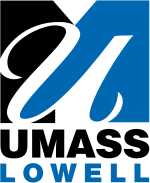Founded in 1894, the University of Massachusetts Lowell (UMass Lowell) is a public research university situated in the historic mill city of Lowell, Massachusetts. With a student body of over 18,000 learners, the institution sprawls across a campus that blends urban energy with New England charm. Serving a diverse student population, UMass Lowell has etched its place as a hub for innovation, offering a myriad of undergraduate, graduate, and doctoral programs.
Distinctive for its hands-on learning philosophy, UMass Lowell stands out with its leading-edge research facilities and industry partnerships. It offers unique programs such as the Plastics Engineering department, which is one of only a few in the nation, contributing to advancements in materials science and engineering. Additionally, the university's highly acclaimed Music Business program merges the worlds of art and commerce, preparing students for the dynamic and evolving music industry. The University's River Hawk Ventures is another exemplary initiative, fostering entrepreneurial spirit by investing in student and faculty-led start-up companies, turning innovative ideas into marketable products.
UMass Lowell consistently demonstrates excellence beyond academia, illustrated by its positive community impact and the success of its alumni. The university's research endeavors often focus on real-world applications, ranging from the development of cutting-edge, wearable health monitoring devices to sustainable energy solutions. Notably, UMass Lowell participates in the Lowell's annual Kerouac literary festival, enhancing cultural engagement and celebrating the city's rich literary heritage. Furthermore, its athletic teams, known as the River Hawks, encourage widespread school spirit, and the Tsongas Center provides a gathering spot for both university and community events.
Despite its many accolades, UMass Lowell grapples with certain challenges as it strives to provide top-tier education and resources. While its urban setting offers numerous advantages, some students might find the campus's division across several city blocks to be less cohesive than a traditional college campus, potentially impacting the sense of community. Additionally, as with many public universities, state funding constraints can lead to tuition increases and impact the availability of financial aid, posing a hardship for some students. Balancing growth with maintaining affordability and accessibility continues to be a challenge as UMass Lowell pursues its mission of educational excellence.



